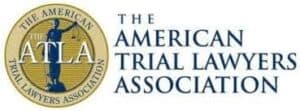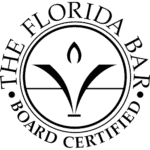St. Petersburg Workers’ Compensation Attorney
Florida Attorneys
Serving You and The State of Florida
Facing a workers’ compensation lawsuit can feel like a serious financial blow to your business. Suddenly, you’re caught in a system that seems designed for payouts, dealing with paperwork, hearings, and the risk of rising insurance costs or direct payouts.
It’s a burden you didn’t anticipate, and it takes attention away from running your company. The rules can be confusing, the employee’s version of events may not line up with yours, and your insurer likely has its own priorities.
You need practical advice and a defense strategy that’s tailored to your needs. Lopez Law Group delivers legal counsel to St. Petersburg businesses navigating workers’ compensation disputes. We focus on protecting your interests and minimizing long-term impact.
Not sure what your responsibilities are—or how to respond when a claim doesn’t seem legitimate? Contact Lopez Law Group’s workers’ compensation attorneys in St. Petersburg at (727) 933-0017 to help you address the situation head-on.
St. Petersburg Workers’ Compensation Guide
-
- Why Choose Lopez Law Group for Your Business Defense?
- What Exactly is Workers’ Compensation (From the Employer’s Side)?
- The Real Costs: Penalties and Financial Fallout for Employers
- Workers’ Comp Claims Landscape in St. Petersburg
- How Lopez Law Group Defends Your Business
- What Your Business Should Do After Receiving a Claim Notice
- Protect Your Business: Take Control of Workers’ Comp Claims
Why Choose Lopez Law Group for Your Business Defense?

St. Petersburg Workers’ Compensation Lawyer, Geoffery Pfeiffer
When your business faces a workers’ compensation challenge, you need a legal team that understands what’s at stake and provides clear, realistic solutions. At Lopez Law Group, we’re committed to offering straightforward legal advice with your company’s future in mind.
Our extensive experience in areas like business law, personal injury, and real estate provides a well-rounded foundation when representing employers in workers’ comp matters. We’ve guided businesses through complex legal landscapes with diligence and honesty. Clients have trusted us for our responsiveness and practical guidance, knowing we’ll never encourage needless litigation that doesn’t serve your best interests.
We’re located at 700 7th Ave N, Suite A, St. Petersburg, FL 33701, in the Uptown area—just northeast of Mirror Lake and convenient to downtown. Our team works closely with St. Petersburg’s business community to build strong, lasting professional partnerships.
What Exactly is Workers’ Compensation (From the Employer’s Side)?

You receive a notice. An employee says they were injured on the job—and suddenly the workers’ compensation system becomes part of your reality. What does that mean for you?
In Florida, workers’ compensation is a state-regulated insurance program that provides benefits to employees who suffer job-related injuries or illnesses. In exchange for these benefits (which you, as an employer, are required to provide under Florida Statutes Chapter 440), employees generally give up the right to sue you directly for workplace injury negligence.
In theory, it’s straightforward. In practice, it’s not. As an employer, your responsibilities include:
- Maintaining valid workers’ compensation insurance (or qualifying as self-insured).
- Posting required legal notices where employees can easily access them.
- Promptly reporting any workplace injury to your insurance provider.
- Cooperating fully with the insurer throughout the claims process.
Disputes often surface when there’s uncertainty about the facts of a claim. Common points of contention include:
- Whether the injury occurred during work duties. Was the employee on the clock and actually performing job-related tasks?
- Pre-existing conditions. Did the job actually worsen a previous injury?
- Violation of safety policies. Was the employee impaired or noncompliant? (See Florida Statute § 440.09).
- Questionable or exaggerated claims. Unfortunately, not all claims are accurate.
- Timely and proper reporting by the employee. Missed deadlines or incomplete reports can impact eligibility.
Successfully disputing a claim involves a detailed review of events, compliance with legal definitions, investigation, and the collection of supporting evidence. This could mean accessing medical records, interviewing witnesses, and carefully comparing the facts to the legal criteria spelled out under Florida Statute § 440.09(1). Your defense depends on showing that at least one required element of a valid claim is unsupported.
The Real Costs: Penalties and Financial Fallout for Employers

Failing to respond appropriately to a workers’ comp claim can significantly damage your business operations and cash flow, quickly multiplying beyond the initial scope of the claim.
If you don’t carry the required insurance, Florida’s Division of Workers’ Compensation may issue a stop-work order that immediately halts your ability to operate (Florida Statute § 440.107). You may also be hit with fines that triple your potential premiums or tack on investigative costs.
Even with insurance in place, mishandling claims can lead to other problems:
- Rising Premiums: Each claim affects your experience modification rate (e-mod), which insurers use to calculate your premium. Disputing weak claims helps control these future expenses.
- Out-of-Pocket Payments (for Self-Insured Employers): Self-insured businesses must cover legitimate medical costs and lost wages, making it critical to challenge invalid claims.
- Attorney Costs: Legal instructions and representation cost money—but often save more when preventing payouts on fraudulent claims.
- Loss of Productivity: Investigations and paperwork take valuable time away from your actual business operations and staff efficiency.
- Damage to Reputation: How your business responds to employee claims affects how you’re perceived by current and future employees. Fair and lawful handling of claims builds long-term credibility.
The financial impact of a single workers’ comp issue can echo through multiple areas of your operation. A proactive legal strategy helps control that impact.
Workers’ Comp Claims Landscape in St. Petersburg

St. Petersburg’s workforce is concentrated in industries with higher injury risk—construction, healthcare, food service, and retail. These sectors make up a large portion of the local job market, meaning workers’ comp claims are a recurring issue in the region.
Despite a statewide 15.1% decrease in workers’ compensation insurance rates in 2024, and a further modest 1% cut planned for 2025, the underlying risk for workplace injuries hasn’t gone away. In fact, in industries like construction, a single injury claim can cost over $41,000 on average, with severe cases like amputations exceeding $110,000.
Florida’s heat also plays a role. Rising temperatures have been linked to a spike in workplace injuries, especially for outdoor workers or those exposed to hot environments—delivery drivers, kitchen staff, and construction laborers among them. In traffic-heavy zones of St. Petersburg, mobile workers face added risk, particularly in logistics and hospitality roles.
The Tampa-St. Petersburg-Clearwater metro continues to mirror statewide claim trends, showing that while premiums might be dropping, the exposure—especially in physically demanding or heat-exposed jobs—remains very real.
St. Petersburg Accident Hotspots
Certain roads and intersections are more likely to be associated with workplace-related incidents. According to local data, higher-than-average injury risk areas include:
- US-19 (34th Street): Heavy congestion and frequent collisions make this corridor a known danger zone.
- 4th Street N / US-92: Especially near cross-streets like 9th Ave N and First Ave, accident rates are consistently high.
- 38th Avenue North: Especially at intersections with major thoroughfares such as US-19.
- Central Avenue: Dense retail and pedestrian activity near downtown increase the risk for service employees and drivers.
- SR-693 (66th Street North): Multiple intersections—especially 22nd Ave North—are known for frequent vehicle incidents.
These areas combine commercial activity with traffic congestion and less-forgiving road designs, posing major risks for employees traveling between locations or working near roads.
Industry Claim Trends
Data shows that construction, healthcare, hospitality, and retail workers account for a significant share of claims in the region. Notable injuries include slipping accidents, lifting-related back injuries, collisions while on duty, and occasionally, altercations.
How Lopez Law Group Defends Your Business

Knowing which industries hold the most risk and where accidents tend to happen is only part of the picture. Responding strategically to actual claims is what protects your company’s legal and financial standing. Employee attorneys and investigators are doing their jobs—you need someone equipped to do the same for your side.
Lopez Law Group steps in to cut through the red tape. A few of the methods we use include:
- Detailed Investigations: We examine whether the employee was performing work duties, check security video, review employment files, interview potential witnesses, and track timelines.
- Medical Evidence Review: Our attorneys analyze medical records, looking for inconsistencies or signs of prior conditions, and consult with medical professionals where needed.
- Challenging the Work Connection: We assess whether the incident meets the legal standard of arising from employment-related duties—and identify evidence that challenges that conclusion.
- Spotting Red Flags: Indicators such as delayed reporting, conflicting accounts, or patterns of prior claims help identify fraud. Our team works to verify or discredit suspicious factors.
- Insurance Negotiation: We advocate directly with your insurer, providing documentation that supports a favorable outcome and pushing back against any unsupported liability.
- Representation in Proceedings: If your claim heads to mediation or hearings before a Judge of Compensation Claims, we present your defense clearly, cross-examining witness testimony and presenting evidence.
- Prevention and Compliance: Beyond the dispute itself, we help ensure your business is staying compliant to reduce future risk and meet regulatory obligations.
Our mission is to resolve the dispute quickly and efficiently—so you can focus on your business instead of legal problems.
What Your Business Should Do After Receiving a Claim Notice
The claim notice arrives, and tensions rise. What comes next is crucial—because your response and preparation can shape the entire case.
- Immediate Action: Report and Notify
- Report to Your Insurance Provider Instantly: This is non-negotiable. Contact your insurance broker or the carrier’s claims department immediately upon receiving the notice. Adhere strictly to the reporting procedures outlined in your policy.
- Why the Urgency? Insurance policies have strict notification deadlines. Missing them can jeopardize your coverage, leaving your business financially exposed, even if the claim itself lacks merit. Delays can also signal negligence or disorganization to insurers and opposing counsel.
- Provide Key Details: Have your policy number, the claimant’s name, the date of the alleged incident, and a brief, factual description ready.
- No Matter Your Opinion: Report the claim even if you strongly doubt its validity or the employee’s account. Let the insurance professionals begin their process. Your initial belief doesn’t change your reporting obligation.
- Notify Internal Stakeholders: Inform key internal personnel (e.g., HR Manager, Safety Officer, relevant Department Head) on a need-to-know basis. Ensure everyone understands the importance of confidentiality and directs inquiries to the appropriate point person.
- Report to Your Insurance Provider Instantly: This is non-negotiable. Contact your insurance broker or the carrier’s claims department immediately upon receiving the notice. Adhere strictly to the reporting procedures outlined in your policy.
- Launch Your Internal Investigation & Preserve Evidence
- Treat it Formally: Initiate a structured internal investigation immediately. Designate someone to lead this effort.
- Secure the Scene (If Applicable): If the claim relates to a specific location (e.g., accident site), secure it if possible. Take photographs or videos before anything is altered. Document the conditions exactly as they were, if feasible.
- Preserve Key Documents (Implement a Legal Hold):
- Gather: Collect all potentially relevant documents: official accident/incident reports, first aid logs, witness statements already taken, relevant safety policies and procedures, training records (especially safety training for the claimant and involved area), equipment maintenance logs, safety inspection checklists, facility access logs, work orders related to the area/equipment.
- Legal Hold: Issue a formal “legal hold” or “document preservation” notice internally if necessary. This instructs relevant employees not to delete, destroy, or alter any potentially relevant documents, including emails, digital files, and physical paperwork.
- Identify and Interview Witnesses Promptly:
- Who: Identify anyone who might have witnessed the incident, the immediate aftermath, or has knowledge of the conditions leading up to it.
- How: Conduct interviews as soon as possible while memories are fresh. Ask open-ended, non-leading questions. Focus strictly on factual observations (“What did you see/hear?”). Avoid speculating or guiding their answers.
- Document: Summarize interviews factually and objectively. If possible and appropriate, have the witness review and sign the summary or provide a written statement. Note the date, time, and location of the interview.
- Thoroughly Review the Employee’s File:
- Scope: Examine the claimant’s complete personnel file, including hiring documents, job description, performance reviews, attendance records, previous injury reports, disciplinary actions, requests for medical accommodations, FMLA leave history, and any documented interpersonal conflicts.
- Context: This information can provide crucial context regarding pre-existing conditions, performance issues, potential motives, adherence to safety protocols, or prior similar incidents.
- Secure and Preserve Digital Records:
- Scope: Save relevant emails, internal messages (e.g., Slack, Teams), timecard data, building access logs, system login/logout records, GPS data (for company vehicles/devices), and crucially, any relevant CCTV or security camera footage from the date(s) in question.
- Act Fast: Digital data, especially video footage, is often overwritten quickly. Secure copies immediately.
- Maintain Strict Communication Protocols
- Stick to Observable Facts: This is paramount. When discussing the claim internally, with your insurer, or eventually with legal counsel, report only what was directly observed or documented. Avoid speculation, opinions (“He didn’t seem that hurt,” “I think they’re faking”), or emotional language. Instruct all managers and involved employees to do the same. One speculative comment can undermine your entire position.
- Designate a Spokesperson: Limit who speaks about the claim externally (especially to the claimant or their representatives, once notified). Usually, this will be HR, the insurance adjuster, or your attorney.
- Confidentiality: Remind involved employees that the claim details and investigation are confidential. Discourage workplace gossip, which can create inaccurate narratives and potential legal issues.
- Avoid Direct Negotiation (Initially): Do not attempt to settle the claim directly with the employee or promise specific outcomes once it’s been reported to insurance, unless specifically advised by your insurer or legal counsel.
- Professional Guidance and Cooperation
- Cooperate Fully with Your Insurer: Provide requested documents and information to your insurance adjuster promptly. They are your first line of defense and need accurate information to assess the claim and manage your defense under the policy.
- Leave Social Media Investigation to Professionals: Do not have managers or colleagues scour the claimant’s social media profiles. This can lead to privacy violations, claims of retaliation, or inadvertently accessing legally protected information. If social media review is deemed necessary, let your insurance adjuster or legal team handle it appropriately and legally.
- Manage the Ongoing Employee Relationship (If Applicable)
- Professionalism: If the claimant is still employed, ensure they are treated professionally and without retaliation. Any adverse action taken against them post-claim can lead to a separate, often more damaging, retaliation lawsuit.
- Return-to-Work: If the claim involves injury, work closely with your insurer and potentially medical professionals on appropriate return-to-work protocols or modified duty assignments, adhering to ADA and FMLA requirements.
Bring all relevant information to your attorney. The more complete your records, the more successfully your legal team can challenge questionable claims.
Protect Your Business: Take Control of Workers’ Comp Claims
Lopez Law Group offers clear, responsive representation for businesses in St. Petersburg facing these issues. Don’t guess when legal and financial outcomes are on the line—speak with attorneys who understand the importance of your business’s stability.
Contact St. Petersburg business lawyers today at (727) 933-0017 to start building your defense strategy.
Practice Areas
- Employers
- Commissions and Bonus Law
- Discrimination Disputes
- Age Discrimination
- Disability Discrimination
- Pregnancy Discrimination
- Race Discrimination
- Religion Discrimination
- Sex and Gender Discrimination
- Family Medical Leave Act (FMLA) Claims
- Federal FMLA Law
- Florida FMLA Law
- Independent Contractor Law
- Minimum Wage Disputes
- Misclassification as Exempt
- Non-Compete Agreement
- Overtime Pay Calculations
- Severance Contract Drafting
- Sexual Harassment
- Unpaid Wages Dispute
- Whistleblower Law
- Workers’ Compensation
- Workplace Bullying
- Employees
- Commissions and Bonus Law
- Discrimination Disputes
- Disability Discrimination
- Age Discrimination or ADEA Claims
- Pregnancy Discrimination
- Race Discrimination
- Religious Discrimination
- Sexual Orientation Discrimination
- EEOC Mediation
- Equal Pay Law
- Equal Pay Disputes
- Family Medical Leave Act (FMLA) Claims
- Florida FMLA Claims
- General Federal FMLA Claims
- Hostile Work Environment
- Minimum Wage Law
- Misclassification as Exempt
- Non-Compete Agreement
- Non-Compete Agreement Review
- Retaliation in the Workplace
- Overtime Pay Calculations Law
- Severance Contract Review
- Severance Package
- Sexual Harassment
- Unemployment Compensation Claims Lawyer Near Me
- Unpaid or Overtime Wages Dispute
- Whistleblower Law
- Worker’s Comp
- Workplace Bullying
- Wrongful Termination
What Our Clients Say
A Godsend
Mr. Lopez was a Godsend and really helped me with my situation. Him and the entire firm were very diligent and helped speed the early stages of the process along due to a pressing situation. Throughout my experience working with the firm, they were always responsive and available any time I had a question or wanted to check on the state of affairs. Hopefully I won’t have to recommend Lopez Law Group to my friends or family, but if those unfortunate circumstances arise then there’s only one name I would trust. Thank you again for all your help!
Lopez Law Group Can See You Through Cases Like:
Don't See What You Need?
Lopez Law Group
700 7th Ave N, Suite A,
St. Petersburg, FL 33701
P: 727-933-0015
Business Hours
Mo, Tu, We, Th, Fr
Schedule a Call Back
Book a Consultation






















